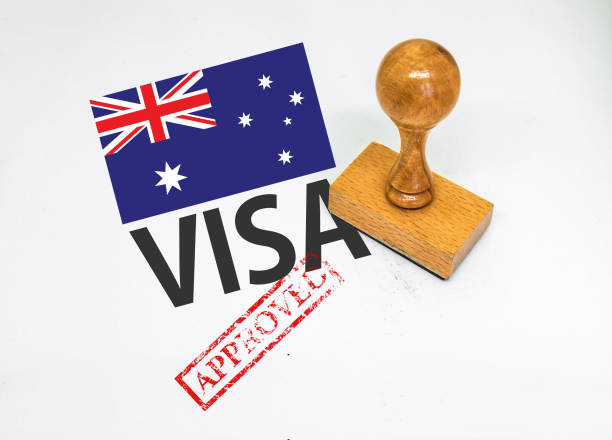What are sponsorship obligations Australia? When do sponsorship obligations apply? Which visas are these obligations relevant for? There are certain popular employer sponsored visas that skilled workers obtain to come to Australia. Employers sponsor these migrant skilled workers, but this must not adversely affect Australian citizens.
The sponsors have certain sponsorship obligations in Australia that they must satisfy. It is important to make note of these so as to avoid discriminatory recruitment practices or engage in discriminatory recruitment. This ensure that employees meet genuine skills shortages, and do not undercut local labour wages.
Failure to satisfy such obligations can lead to the sponsor facing serious consequences including the Minister or the Department of Home Affairs cancelling their sponsorship approval. This will prevent them from sponsoring any foreign workers.
Moreover, the Department can also bar the sponsor from making sponsorship applications in the future. In this article, we will explore some sponsorship obligations in Australia as of 2023.
What are Employer’s Sponsorship Obligations in Australia?
When sponsoring the employee under a skilled work visa, the employee has to nominate an occupation and work within the nominated occupation. For example, let’s consider the Temporary Skilled Shortage visa (subclass 482) visa. Let’s suppose Henry has nominated the occupation of Data Scientist.
His employer sponsors him to work under this occupation. It is the sponsor’s obligation to make sure that their sponsored employee works only within their nominated occupation i.e. Data Scientist in this case.
If the employee wants to switch occupations, the sponsor will need to lodge a new nomination for the new occupation. Subsequently, the employee will need to lodge a new visa application under the new nominated occupation.
Given below is a list of some of the important Australian sponsorship obligations for the sponsor:
- Make sure not to engage in discriminatory practices;
- Ensure to meet equivalent terms and conditions of employment;
- In case of any changes to your business you must notify the Department;
- Keep records that showcase your compliance with all obligations. Provide these records if the Department requests it;
- Inform the DHA if your sponsored visa holder leaves employment, or the nature of the employment changes – within 28 calendar days if certain events occur;
- Make payments for all costs associated with becoming a nominated sponsor;
- Arrange to pay travel costs (reasonable costs) for the sponsored visa holder and any dependents or sponsored family members.

Consequences of Failure to Comply with Sponsorship Obligations Australia
The Migration Act (1958) provides a list of some consequences that parties face in case of failure to comply with sponsorship obligations.
For instance, Section 140K lists out certain consequences. In such cases, the minister may:
- if regulations are prescribed under section 140L, bar the sponsor under subsection 140M(1) from doing certain things;
- if regulations are prescribed under section 140L, cancel the person’s approval as a work sponsor or family sponsor under subsection 140M(1);
- apply for a civil penalty order;
- accept an undertaking under section 114 of the Regulatory Powers Act, for the purposes of this Subdivision from the person;
- if the Minister considers that the person has breached such an undertaking – apply for an order under section 115 of the Regulatory Powers Act, for the purposes of this Subdivision.
Moreover, the Minister may issue an infringement notice as an alternative to proceedings for a civil penalty order. Lastly, an authorised officer may require and take a security under section 269 or enforce a security already taken under that section.
Failure to Satisfy Sponsorship Obligations Australia: Migration Regulations 1994
The Migrations Regulations 1994 – Regulation 2.89 includes points in relation to the failure to satisfy sponsorship obligations.
This regulation applies to a person who is or was:
- a standard business sponsor in relation to a primary sponsored person or a secondary sponsored person; or
- a professional development sponsor in relation to a primary sponsored person; or
- a temporary work sponsor in relation to a primary sponsored person or a secondary sponsored person; or
- a temporary activities sponsor in relation to a primary sponsored person or a secondary sponsored person; or
- a parent sponsor.
Moreover, for subparagraph 140L(1)(a)(i) of the Migration Act, the circumstance is that the Minister is satisfied that the person has failed to satisfy a sponsorship obligation mentioned in Division 2.19
Additional Provisions
Furthermore, for paragraph 140L(1)(b) of the Act, the criteria that the Minister must take into account in determining what action (if any) to take under section 140M of the Act in relation to the circumstance mentioned in subregulation (2) are:
- the past and present conduct of the person in relation to Immigration; and
- the number of occasions on which the person has failed to satisfy the sponsorship obligation; and
- the nature and severity of the circumstances relating to the failure to satisfy the sponsorship obligation, including the period of time over which the failure has occurred; and
- the period of time over which the person has been an approved sponsor; and
- whether, and the extent to which, the failure to satisfy the sponsorship obligation has had a direct or indirect impact on another person; and
- whether, and the extent to which, the failure to satisfy the sponsorship obligation was intentional, reckless or inadvertent; and
- whether, and the extent to which, the person has cooperated with Immigration, including whether the person informed Immigration of the failure; and
- the steps (if any) the person has taken to rectify the failure to satisfy the sponsorship obligation, including whether the steps were taken at the request of Immigration or otherwise; and
- the processes (if any) the person has implemented to ensure future compliance with the sponsorship obligation; and
- the number of other sponsorship obligations that the person has failed to satisfy, and the number of occasions on which the person has failed to satisfy other sponsorship obligations; and
- any other relevant factor.

Seeking Advice from Migration Lawyers
Are you a sponsor looking for overseas skilled workers for your business? Our team of leading migration lawyers have the experience of helping sponsors and employers with carrying out all obligations. Moreover, our network of professionals can allow us to connect you to the right skilled workers.
For more information, do not hesitate to speak to our migration team. We have offices in Sydney CBD, Western Sydney, and Melbourne CBD. Our lawyers also offer online consultations.
Reach out to us.
